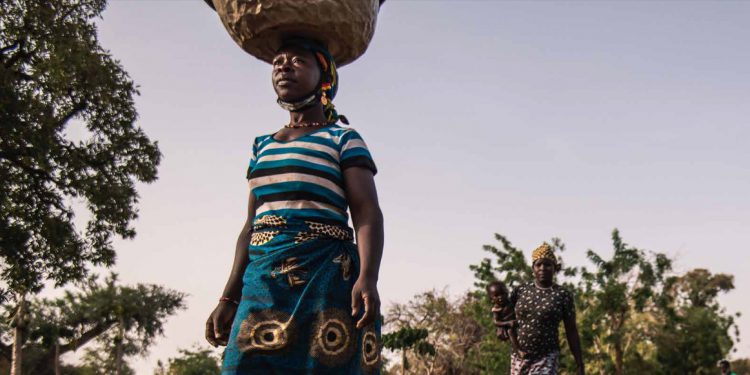An Oxfam report says carbon removal schemes are breaching the land rights of Indigenous people and could lead to food shortages.
The report, called Tightening the Net, says it is mathematically impossible to plant enough trees to meet the combined net zero carbon targets announced by governments and corporations, as there is simply not enough land to do this.
Already in India, as part of an afforestation drive, traditional lands have been fenced off, and communities who have rights to use this land have been forcibly evicted and left homeless. These conflicts are impacting nearly half a million tribal and forest-dwelling people.
Oxfam has calculated that the total amount of land required for planned carbon removal could potentially be five times the size of India, or the equivalent of all the farmland on the planet.
The charity analysed the net zero targets of Shell, BP, TotalEnergies and ENI, finding their plans alone could require an area of land twice the size of the UK.
If the oil and gas sector as a whole adopted similar net zero targets, it could need land that is nearly half the size of the United States, or one-third of the world’s farmland.
“In many cases, net zero targets are greenwashing that enables business as usual”
Oxfam’s analysis shows that several countries and companies are banking on land and natural sinks to meet net zero targets. It says, “There is a very real risk that the explosion in net zero commitments will fuel a new surge in demand for land, particularly in low and middle-income countries, which would lead to mass displacement and hunger.
“In many cases, net zero targets are a greenwashing exercise that enable business as usual.
“This removal of carbon either relies on virtually unproven new technologies, or on a level of land use that is completely impossible and would lead to mass hunger and displacement of people across the world.”
It says the only proven way to remove carbon from the atmosphere is to use land to do so by growing billions of trees and storing carbon in trees and soil.
But land is a finite resource that is a vital lifeline for growing food, central to the livelihoods of millions of small farmers and local communities around the world.
Oxfam is concerned that land will be used as a carbon farm helping big emitters greenwash their business practices while sidestepping emissions reduction.
It points to the agroecological success of the Sahel region of West Africa where food security has improved for three million people, household incomes grown by up to 24 per cent on average, and environmental degradation across six million hectares of land, three times the size of Wales, has been reversed.
“Agroecology in West Africa has led to lower temperatures and improved rainfall”
The region’s 200 million new trees have a production value of over $260 million. The changes have decreased soil erosion, reduced wind speed, decreased local temperatures and improved rainfall.
The report says land use must ensure zero hunger, prioritising food security and “ensure that local communities, Indigenous people and frontline defenders have a seat at the table.
“Where land-based mitigation strategies are used to meet net zero targets, it will be essential to apply robust safeguards, which strengthen land governance.
“Governments and companies must ensure the land rights of communities and Indigenous Peoples are protected. Any land acquisitions must be subject to careful due diligence and must not result in forced evictions.
“Safeguards for Indigenous and tribal peoples, local communities and small-scale farmers must be implemented and expanded.”























